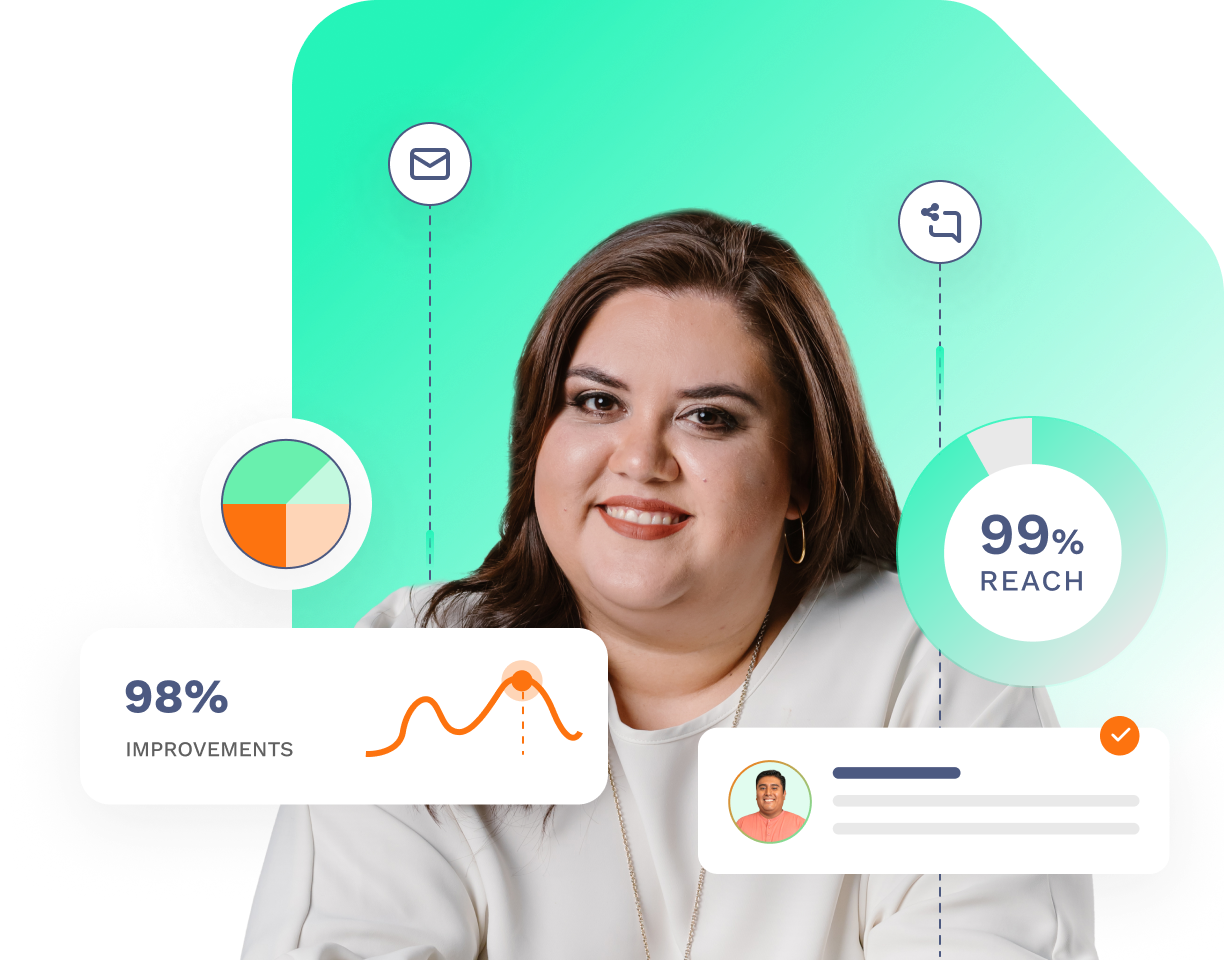B2B Industry
Achieve your 2025 Goals: Sales Funnel optimization for Lead Nurturing & Conversion

Lourdes Calderón
Lourdes Calderón | Dec 09, 2024 | 6 MIN READ
Dec 09, 2024 6 MIN READ

As we approach 2025, setting clear and strategic goals is crucial for businesses aiming to stay ahead in an increasingly competitive market. These goals serve as a roadmap, guiding your strategies and ensuring all efforts contribute effectively to growth and success. One of the most impactful areas where this focus can be applied is your sales funnel. By optimizing your sales funnel and aligning it with tailored lead nurturing practices, businesses can improve not only engagement but also conversion rates, resulting in a stronger bottom line. Sales funnel optimization means more than just attracting new leads—it’s about guiding them smoothly through each stage, from awareness to decision, with the right nurturing strategies at every step. This ensures that potential customers remain engaged, informed, and confident in their decision to convert.
In this blog, we’ll explore how to align your 2025 goals with a well-optimized sales funnel, the importance of personalized lead nurturing, and proven tactics to increase conversions.
Understanding your Current Sales Funnel Performance
To effectively optimize your sales funnel for 2025, start by analyzing its current performance. A sales funnel consists of key stages: awareness, interest, consideration, intent, evaluation, and purchase. Understanding how leads move through these stages helps identify areas for improvement.
- Analyzing the Components of Your Sales Funnel: Map out your existing funnel to visualize how leads flow through each stage. Identify where potential customers drop off most frequently. For instance, a significant decline between the interest and consideration stages may suggest that your nurturing content lacks appeal or that leads need more detailed information before progressing.
- Evaluating Key Metrics Assessing key performance metrics is essential:
- Conversion Rates: Monitor conversion rates at each stage to spot where leads are lost. Low conversion rates early on may signal ineffective outreach, while drops in later stages could indicate insufficient engagement.
- Lead Quality: Measure the quality of leads entering the funnel. Are they aligned with your target audience? High-quality leads often lead to better conversion rates. Implement lead scoring to prioritize leads based on engagement, demographics, and behavior.
- Customer Acquisition Cost (CAC): Calculate CAC to understand how much it costs to acquire new customers. High CAC may indicate inefficiencies that need addressing, such as costly but ineffective lead generation methods.
- Identifying Common Pitfalls and Areas for Improvement: Look for common pitfalls that hinder lead nurturing:
- Lack of Personalization: Leads expect tailored experiences. Generic communication may result in disengagement. Personalize messages based on lead behaviors and needs.
- Inconsistent Follow-Up: Ensure timely and consistent follow-ups, using automation if necessary.
- Weak Content: If your content isn’t addressing lead concerns, they won't progress. Invest in high-quality, relevant content for every stage.
Analyzing these areas provides insights that form the foundation for sales funnel optimization, enhancing your lead nurturing and conversion strategies for 2025 success.
.png?width=1200&height=544&name=image%20(4).png)
Implementing Effective Lead Nurturing Strategies
For businesses aiming to optimize their sales funnel for 2025, implementing effective lead nurturing strategies is essential. At this point, prospects are aware of your brand but need more convincing to move forward. Here’s how to make your lead nurturing impactful.
- Explore Proven Lead Nurturing Techniques: Utilize personalized email campaigns to engage leads with content tailored to their interests. Personalized emails, which include relevant product recommendations or educational resources, can significantly improve engagement and drive conversion. Complement these efforts with targeted content marketing, such as in-depth blog posts, webinars, or case studies that address common pain points and showcase your expertise.
- Segment Your Audience for Targeted Nurturing: Audience segmentation is crucial for providing a tailored experience. By categorizing leads based on behavior, demographics, or engagement level, you can create targeted campaigns that speak directly to their needs. For example, a lead who downloaded a product guide may be nurtured differently from one who attended a webinar, receiving content that deepens their understanding and builds trust.
- Examples of Successful Lead Nurturing: A well-executed nurturing strategy can yield impressive results. For instance, companies that segmented their audience and used personalized follow-up emails saw a 20% increase in conversion rates. Additionally, brands leveraging content marketing to answer common questions and demonstrate thought leadership often see higher engagement and faster movement through the funnel.
.png?width=1200&height=544&name=image%20(5).png)
Sales Funnel Optimization Techniques for 2025
Optimizing the sales funnel is critical for converting interested prospects into committed leads. To stay competitive in 2025, businesses should adopt targeted optimization strategies that refine this vital funnel stage.
- Implement Specific Optimization Strategies: Utilize A/B testing to determine which messaging, CTAs, and visuals resonate most with your audience. Testing different approaches helps identify the most effective tactics for engaging leads. Additionally, leverage automation tools to streamline repetitive tasks like follow-up emails and drip campaigns, ensuring consistent and timely communication without manual oversight.
- Leverage Data Analytics for Refinement: Data analytics plays a central role in optimizing your funnel. By examining metrics like click-through rates, bounce rates, and time spent on content, you gain valuable insights into which elements capture attention and which need adjusting. Use these insights to iterate on your strategies, refining content and messaging to better align with lead expectations.
- Align Sales and Marketing Teams: Collaboration between sales and marketing is key. Align these teams to create a unified strategy that combines marketing’s nurturing content with sales’ targeted outreach. Regular communication and shared tools, such as a CRM system, can help both teams stay informed about lead behavior and stage progression, enhancing efficiency and conversion rates.
.png?width=1200&height=544&name=image%20(6).png)
Measuring Success and Adjusting for Continuous Improvement
After implementing sales funnel optimization strategies, measuring success and continuously improving your approach is essential for sustained growth in 2025.
- Track Key Performance Indicators (KPIs): Monitor specific KPIs to assess the effectiveness of your efforts. Important metrics include lead conversion rates, cost per lead (CPL), and engagement rates for targeted content. These KPIs provide insight into how well your strategies are moving leads through the funnel and where adjustments might be needed.
- Importance of Feedback Loops: Establishing feedback loops is critical for ongoing optimization. Regularly collect input from both your sales and marketing teams to understand which strategies are working and where challenges persist. This continuous feedback helps refine your approach, ensuring that nurturing tactics stay relevant and effective as trends shift.
- Adapt and Iterate: The business landscape is dynamic, and strategies need to evolve accordingly. Use data insights from KPIs and team feedback to iterate on your funnel tactics. Adjust campaigns, fine-tune content, and realign team efforts based on what the data reveals. By staying agile and data-informed, you’ll keep your sales funnel performing at its best, fostering better conversions and long-term success through 2025.
.png?width=1200&height=544&name=image%20(7).png)
Conclusion
Optimizing your sales funnel is not a one-time effort but a continuous journey that demands attention and adaptability, especially as you strive to achieve your 2025 goals. By implementing effective lead nurturing strategies, employing targeted optimization techniques, and consistently measuring your success through key performance indicators, you can create a dynamic funnel that effectively converts interested prospects into loyal customers.
TABLE OF CONTENTS
Stay Updated with Our
Latest Posts
Subscribe now to receive the freshest content, insights, and updates directly in your inbox.

.png?width=500&height=261&name=call%20to%20action_10142024%20(3).png)


.png?width=90&height=90&name=facebook%20(1).png)
.png?width=94&height=96&name=Vector%20(1).png)
